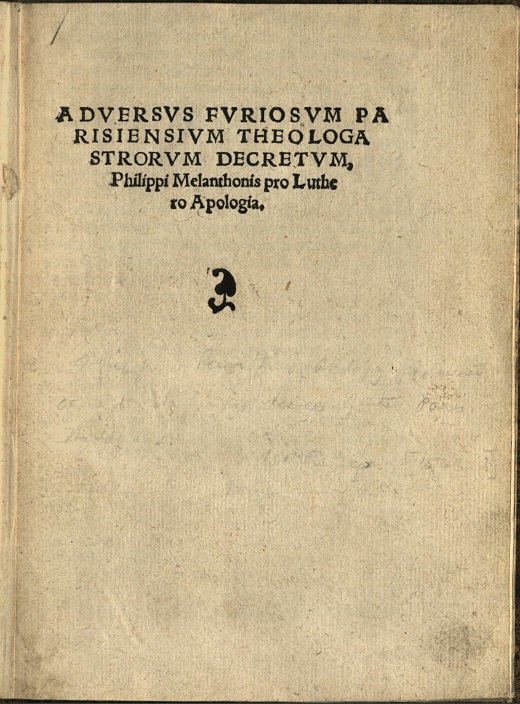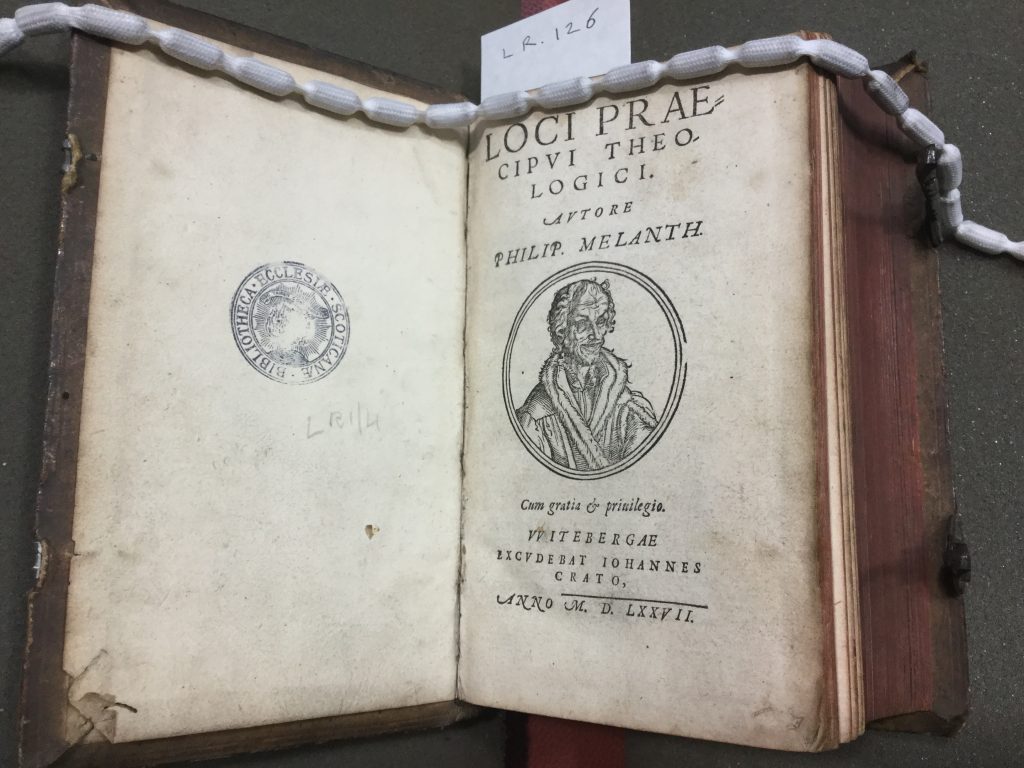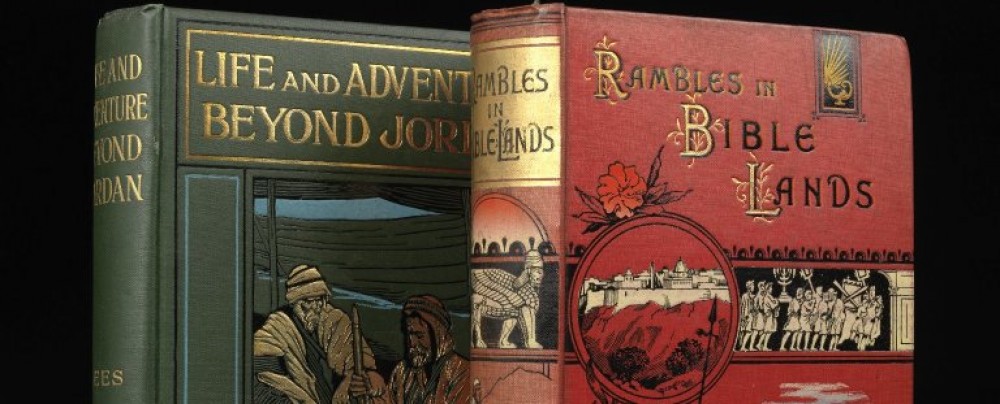Philipp Melanchthon (1497-1560) was born on 16 February 1497, to become a Greek scholar and Protestant theologian, and a powerful force in Reformation debate.
A colleague of Luther’s at the University of Wittenberg, Melanchthon took part in the ‘pamphlet wars’ that spread the debates across Europe. New College Library holds early examples including this 1521 pamphlet:

Melanchthon, Philipp. Aduersus furiosum Parisiensium theologastrorum decretum Philippi Melanchthonis pro Luthero Apologia. Basel, 1521. New College Library B.a.1.15
The book below, an edition of Melanchthon’s important work Loci Communes, was developed from his Lectures on Romans at the University of Wittenberg.

Melanchthon, Philipp. Loci praecipui theologici
VVitebergae i.e. Wittenberg, Saxony-Anhalt, Germany : Excudebat Iohannes Crato ;Anno MDLXXVII
From its first beginnings as a list of what a reader should look for in the scriptures, the different editions of this work were shaped by decades of debate until the Loci Communes became a “powerful means to clarify and teach elements of doctrine.”(1)

In this 1577 edition, Melanchthon’s image appears as a woodcut title page portrait of the author. But his portrait is also preserved in the binding, which has sixteenth century vellum over wooden boards with decorative panels enclosing a blind tooled portrait. The edges of the leaves are stained red, with brass clasp fasteners. This book is more than a text, it is a high value item and an indication of the status Melanchthon had gained as a Reformation icon since his death in 1650.
(1) Kusukawa, S. (2004) ‘Melanchthon’, in Bagchi, D. and Steinmetz, D.C. (eds.) The Cambridge Companion to Reformation Theology:. Cambridge: Cambridge University Press, pp. 57–67
Christine Love-Rodgers, Academic Support Librarian – Divinity
With thanks to Paul Nicholas, Project Cataloguer
